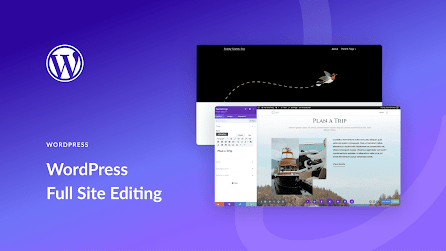WHAT IS A WORDPRESS?
What is WordPress?
WordPress is a WordPress platform that allows developers to create and manage a website. WordPress is free and open source, and it has a community of developers who help improve and maintain the platform. WordPress is a popular platform for website creation and content management, and it is used by millions of people around the world.
WordPress is a great platform for small businesses because it offers a lot of features and options that can be customized to fit your needs. It also has a large user base, which can help you get started quickly and easily.
WordPress also offers a wide range of plugins and themes that can be used to create a custom
It is a no cost, available for all content management system (CMS) that makes easy to create and manage websites. It is consisted on PHP and MySQL, is famous for its using easily and ability to bend. WordPress can be used to create a wide variety of websites, including blogs, e-commerce sites, portfolios, and forums. It is the most popular website platform in the world, powering over 40% of all websites on the internet.
The core software of WordPress is built with a template system, which makes it easy for users to customize the appearance of their site. Users can choose from thousands of free and paid templates, known as "themes," or create their own custom design. Additionally, WordPress has a large library of plugins, which are small software programs that can be added to a site to add new features or functionality.
WordPress also has a built-in content editor that allows users to easily create and manage their site's content, such as pages and posts. Users can also manage the site's media, such as images and videos, and manage the site's users, roles, and permissions.
It is also SEO friendly, with many SEO plugin options, which makes it easier for websites to rank well in search engine results, and it is also accessible, and can be used by people with disabilities.
Overall, WordPress is a powerful and flexible platform that is widely used by individuals and businesses of all sizes, and is a good choice for anyone looking to create a website without having to learn to code.
It is a powerful and flexible content management system that can be used to create a wide variety of websites, and learning how to use it effectively would require a significant amount of time and effort.
However, I can provide you with an overview of what you would need to know to get started with WordPress:
Installation: To install WordPress, you will need to have a web hosting account and a domain name. Once you have those, you can download the WordPress software from the official website and follow the installation instructions.
The Dashboard: Once you have installed WordPress, you will be able to access the dashboard, which is where you will manage the content of your website. The dashboard is divided into several sections, including Posts, Pages, Media, and Appearance.
Posts and Pages: Posts and pages are the two main types of content that you can create in WordPress. Posts are used for blog articles, while pages are used for static content such as your about page or contact page.
Themes and Plugins: WordPress is highly customizable, and you can change the appearance of your site by using a different theme. Themes are pre-designed templates that control the layout and styling of your site. Plugins are additional tools that can be added to your site to add new functionality.
Customization: You can customize your site by editing the settings in the dashboard and by editing the code of your theme and plugins. To make advanced customizations, you will need to have some knowledge of HTML, CSS, and JavaScript.
SEO and Security: Optimize your website for search engines and ensure website security by installing and configuring SEO and security plugins.
Maintenance: Regularly update your WordPress version and plugins to ensure compatibility, security and better performance.
This is a general overview of what you would need to know to get started with WordPress. In order to become proficient in using the platform, you'll need to spend time working with it, experimenting with different features, and troubleshooting any issues that you encounter. There are many resources available online, such as tutorials, forums, and documentation that can help you learn more about WordPress.





.jpg)

0 Comments